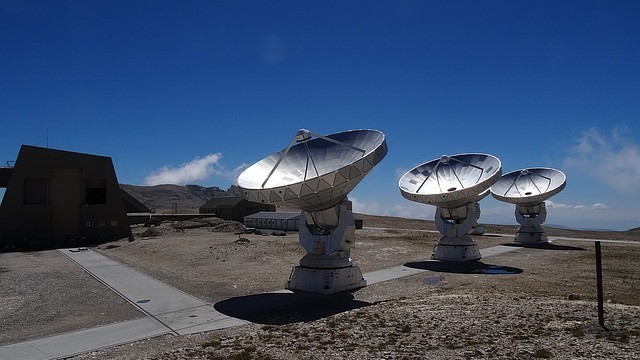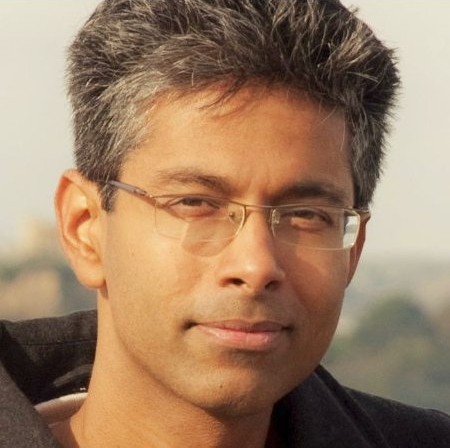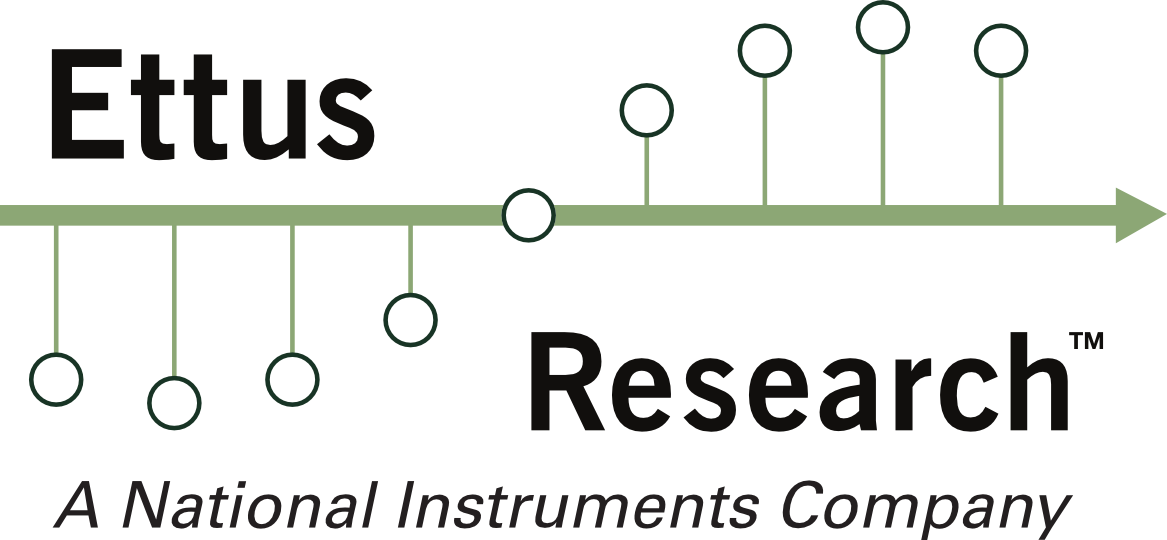
Workshop: Software Defined Radio
Hands-on design with GNU Radio and other open source tools for developing wireless communication systems utilizing the Ettus Research USRP software defined radio platforms.- Introduction to implementation of SDR on USRP platform
- Expansive portfolio of high performance RF hardware
- Exploring open-source GNU Radio framework
What To Expect
We are happy to invite you to join us at an Open Source Software Defined Radio workshop utilizing the Ettus Research USRP software defined radio system and open source tool chains. The OSSDR Workshop, features a full schedule of talks and demonstrations designed to take you from introduction of SDR concepts to implementation on a USRP SDR platform.
Open source software defined radio solutions can accelerate the path from first prototype to broadbase deployment of wireless systems by utilizing a flexible industry standard set of platforms well integrated with open source frameworks. USRP SDR platforms range from low cost and portable to high performance using a common set of platform independent open source software drivers for wireless research. By supporting a wide variety of development environments on an expansive portfolio of high performance RF hardware, the USRP platform is most preferred SDR platform for thousands of engineers, scientists and students worldwide for algorithm development, exploration, prototyping and developing next generation wireless technologies across a wide variety of applications.
The open-source GNU Radio framework helps engineers interface with hundreds of active members supporting other users and growing the code base. Through this open-source community, GNU Radio software continues to evolve and address more applications including RF and communications system design encompassing both MAC and PHY research, spectrum monitoring and signal intelligence, and wireless sensors and tracking.
Among other software options, engineers can program with a graphical system design approach using NI LabVIEW software. NI and Ettus offer a complete platform with an option to reuse existing software tools for simplified programming in a unified design flow that scales from design to deployment. The Open Source Software Defined Radio Workshop provides a great opportunity to learn about the power behind the SDR platform and the open source tools that are being used in the latest wireless communication research. Learn how you can join the wireless open source community and accelerate your time to results with the USRP platform.
Cost
This is an invite only event. Please apply to register. If we have seats available, we will be sending you an invite email within one week of application. To apply for a spot, please click here.
-
November 14th, 2016
REEF, University of Florida
ShalimarTotal Seats: 20
Time: 8.30AM to 12.30PM
Ettus SDR Training: Monday
1 Hour Lunch
1.30PM to 5.30PM -
November 12th, 2016
Florida State University
TallahasseeTotal Seats: 25
Time: 10AM to 1PM
1 Hour Lunch
2PM to 6PMEttus SDR Training: Saturday
-
Past Event
August 24-26th, 2016
Fairfield Inn & SuitesPython training: Friday, Saturday, Sunday
Total Seats: 25
Python Training
Instructor

Dr. Piyush Kumar has been teaching programming for more than 15+ years now in various languages including C++ and Python. His ex-Python students are now placed in respectable positions at Google, Amazon, and startups all over the country. He did his undergraduate degree from IIT Kharagpur (1999), and his MS and PhD in Computer Science from Stony Brook University (2004). Piyush is a recipient of the NSF CAREER Award, the AFOSR Young Investigator Award, NSF ICorps Award, the FSU Developing Scholar Award and the Fulbright Scholar Award. He is a lifetime-senior member of the ACM, CEO of CompGeom Inc (a startup based in Tallahassee, Florida) and on the board of Intelligent Robotics, a non-profit based in Tallahassee, Florida.
Course Agenda
This is a course designed for programmers, engineers and scientists, who have either no exposure to Python and Software Defined Radios, or have learnt bits and pieces from the internet or books. The Python part of course consists of exposing you to:
- Getting Started with Python, Including:
- Introduction to Git and Github/Bitbucket
- Unicode
- Types and Operations
- Functions
- Modules and Libraries
- Text Processing
- OOP
- Inside Python Objects
- Testing/Debugging/Tuning
- Functional Programming
- Processing SDR data using Python
Pre-requisites
For the Python Course, attendees are expected to have a decently configured Ubuntu laptop with at least 4GB RAM and 25GB Hard drive space free. If you do not have one, you want to make sure that your laptop (Linux/Windows/Mac) can boot into Ubuntu using a USB Drive. We will have pre-configured USB drives ready for you. The Python course expects you to have some familiarity with data structures and at least one programming language. For the SDR course, you should have some familiarity with Digital signal processing.
Reference Textbook

This book is a non-traditional approach to learning Python efficiently. In this book, the authors have struck a balance between verbosity and pace of learning. The layout is used to summarize the important features of the language using self-explanatory examples, while keeping descriptions to a minimum.
Software Defined Radio Training
Instructor

Neel Pandeya is a Senior Software Engineer and Manager of the Technical Support group at Ettus Research, a National Instruments Company, in Santa Clara, California. His background and interests are in open-source software development, kernel and embedded software development, wireless and cellular communications, DSP and signal processing, and software-defined radio (SDR). Prior to joining Ettus Research in 2014, Neel Pandeya worked at several start-up and mid-sized companies, such as Envoy Networks, Range Networks, Draper Laboratory, and Texas Instruments. Neel Pandeya holds a Bachelor's Degree in electrical engineering (BSEE) from Worcester Polytechnic Institute (WPI), and a Master's Degree in electrical engineering (MSEE) from Northeastern University.
Course Agenda
The Ettus SDR training will consist of:
- Introduction to SDR concepts
- Overview of USRP architecture
- Overview of products (N200, N210, B200, B210, B200mini, X300, X310, E310, WBX, SBX, CBX, UBX, TwinRX, OctoClock, RFNoC)
- Discussion of software stack and SDR toolchains
- Detailed overview of UHD and GNU Radio
- Discussion of programming options (C++, Python, GRC, LabView, Matlab)
- Hands-on step-by-step discussion of the "Getting Started" procedure
- Building, installing, and configuring UHD and GNU Radio on Linux
- Connecting to, and communicating with, the USRP over USB and Ethernet
- Using Git and GitHub
- Using Wireshark for debugging
- Verifying the correct operation of the device
- Using various utility and example programs from UHD and GNU Radio
- Programming with UHD directly from C++
- Introduction to GNU Radio and GRC
- Creating and running a basic flowgraph
- Creating flowgraphs to verify correct operation of a USRP device
- Using GNU Radio from Python
- Implementing an FM+RDS receiver in GRC
- Implementing an FM+RDS transmitter in GRC
- Exploring other capabilities of GNU Radio
- Discussion of synchronizing multiple USRP devices for phase-synchronous and MIMO applications
- Discussion of the TwinRX daughterboard for MIMO applications
- Building, installing, running GQRX
- Building, installing, running Inspectrum
- Using the Live SDR Environment as a diagnostic and debugging tool
- Discussion of system performance tuning and optimization
- Discussion of using the 10 Gb Ethernet interface
- Overview of the FPGA toolchain (Xilinx Vivado) and building FPGA images
- Introduction and overview of RFNoC
- Detailed discussion of cellular applications (OpenBTS, srsLTE, OpenLTE, Eurecom OpenAirInterface, Amarisoft)
- Detailed discussion of GNSS applications (GNSS-SDR, Skydel Solutions, etc.)
- Discussion, overview, and demo of E310/E312
- Discussion of embedded SDR workflow, embedded Linux environment (OE), and E310/E312 SDK








